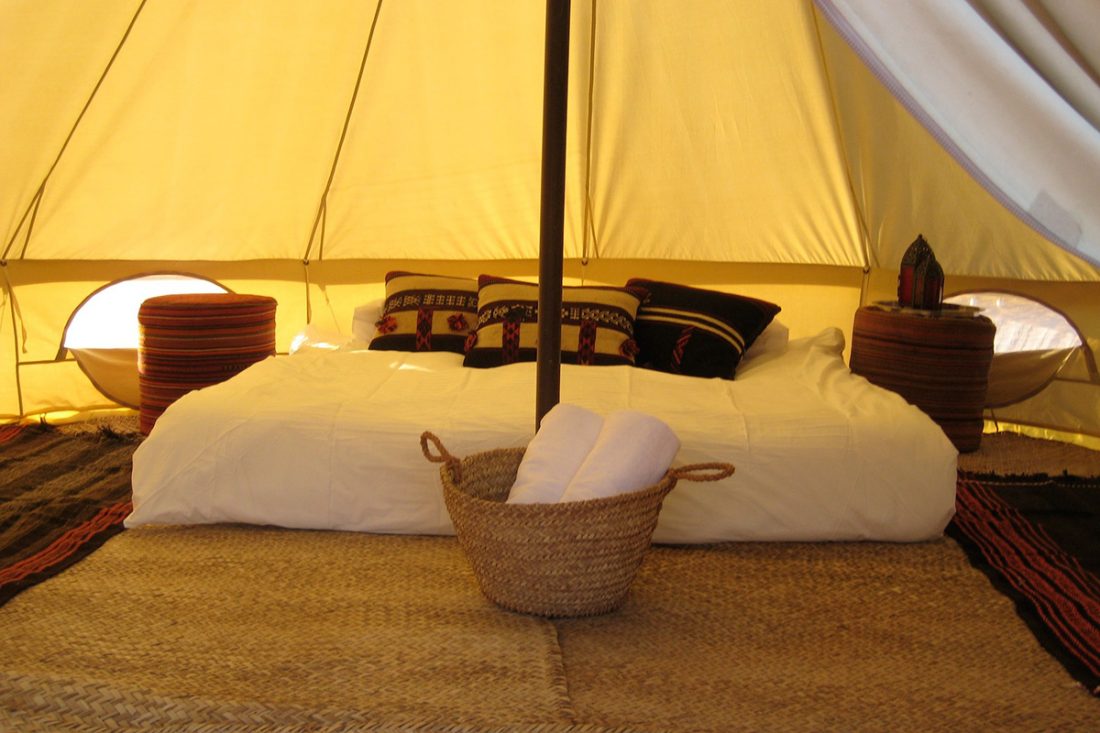Lisa Johnson (The Evening Standard)
Named after the Arabic for hoopoe bird (hud hud), the new mobile safari operation has six canvas tents, wooden pit toilets, pump showers and a lovely majlis (sitting area) bedecked with great round bolsters covered in the red plaid sarongs that Omani men typically wear beneath their dishdashas. It has comfortable beds spread with crisp cotton sheets and local sandalwood soap tied with ribbon.
The big picture is the Dhofari terrain. The Empty Quarter is reputedly even more romantic in winter, when the hot days contrast with cold nights, blazing campfires and glittering stars. Wadi Aydim is a valley bed of smooth white pebbles and stratified cliffs where lone frogs hop past geodes filled with quartz and the tracks of scraggy wolves. And the beach near Mirbat is a sheltered bay on the Indian Ocean fronting an ancient, granitic plain. From the deckchair outside my tent, I watched long-legged crabs scuttle about in the sizeable breakers.
Linking the campsites are yet more spectacular landscapes, including the Jebel Qara – rolling pastureland that catches the monsoon rains from June to September and sits under a mist reminiscent of Scotland – and stunning canyons. We didn’t see another tourist, only the occasional Bedu herder, and a family in a truck that included an old man with a gold tooth, two teenage girls in diaphanous veils, and a boy staring out from under a pillbox hat.
The man invited us for coffee. Traditionally, we would have accepted, stayed for three days of his best hospitality, then left. Traditionally, he wouldn’t even have asked us our business. It would be a shame to come to Oman and not interact with the Omanis, who are hospitable and gracious. Fortunately, this trip can include a foray to the souk in Salalah, where a woman in a black abaya and bejewelled burka sells frankincense, myrrh and cakes of sandalwood in little gold tins.
Frankincense trees don’t look like much, with their twisted branches, peeling bark and shrivelled leaves. But in Biblical times, the gum resin that bubbled out of them was taken by ship and camel from Dhofar to India and China, Damascus and Alexandria. The Queen of Sheba decided the caravan routes in the desert with King Solomon, cities such as Sumharam and Ubar – sought out by T.E. Lawrence and Ranulph Fiennes – flourished, and Dhofar was among the richest regions in the world. It is still utterly captivating.

